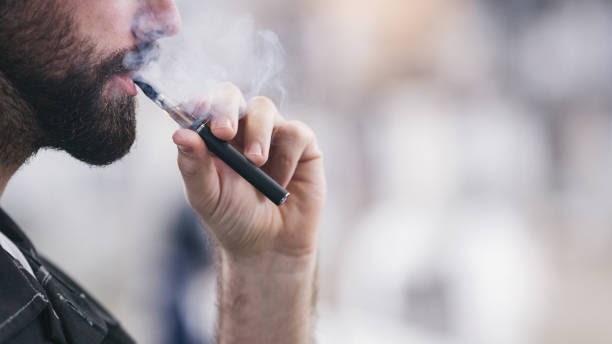
You probably know that smoking is detrimental to your oral and overall health, but what do you know about vaping? Not only does smoking cause gum disease but it also increases your risk for developing cancers of the mouth, throat, and esophagus. Current research about the health effects of vaping is still limited, but preliminary studies suggest that, while vaping is less harmful than smoking, it is far from harmless.
What is Vaping?
A popular alternative to traditional smoking, vaping is the inhalation of vapor that comes from an electronic cigarette or other battery powered vaping device. Vaporizers use cartridges filled with a liquid, known as e-juice or e-liquid, that contain propylene glycol, glycerine, concentrated flavours, a variety of unknown fillers and chemicals, and sometimes variable concentrations of nicotine or cannabinoids such as THC. Whatever ingredients are contained within the e-liquid cartridge will become vapour that is inhaled through the mouth, exposing your gums and teeth to the aerosol vapour.
E-cigarette use is increasing, especially among young people.
Since the legalization of nicotine vaping products in 2018, and the legalization of recreational cannabis in 2019, we are seeing increasing numbers of folks—especially young people—turning to vaporization. A popular habit on it’s own, vaping has also become a smoking cessation tool to ease the transition from traditional smoking to not smoking at all. As oral health care professionals, we encourage you to quit smoking to protect your oral health, but we do not recommend the use of vaping devices.
Toxic e-liquids jeopardize the microbiome balance of the mouth.
Smoke inhaled through the mouth alters the microbiome of the mouth in ways that can lead to cancers. Similarly, the aerosol vapours derived from toxic e-liquids can alter the oral microbiome and trigger a host of problems.
While vaping exposes you to fewer toxic chemicals in lower concentrations than smoking, there are still many harmful ingredients. Unfortunately, e-juice production is currently unregulated in Canada, so you never really know what’s in there. In their 2016 study of e-cigarette toxicology, Kucharska and colleagues (2016) found 113 chemicals in 50 brands of vaping liquids, most of which are never listed on labels; anybody can make e-liquid and send it to market, and the ingredients used are entirely up to the producer. Yikes!
Vapour facilitates plaque buildup.
Unlike smoke, vapour adheres to the teeth due to its viscosity, creating a sticky coating for plaque bacteria to cling to. This forms a biofilm of plaque bacteria that eventually causes tartar buildup, enamel erosion, cavity formation, gingivitis, and other oral health problems. While regular oral care will slow down regular plaque build up, vaping or smoking will speed this process up.
All smoking and vaping causes dry mouth.
Like traditional smoking, vaping causes xerostomia, a condition known as dry mouth. Rather than smoke, the dryness is caused by two of the most common base ingredients in e-liquids, propylene glycol and vegetable glycerin. While dry mouth may seem harmless, your saliva plays an essential role in maintaining your oral health and persistent or chronic dry mouth can cause serious oral health problems.
Quit smoking and vaping with BLOK.
Are you a smoker trying to quit? If you thought vaping was better for your oral health than smoking, we hope you’ll think again! The team at BLOK is here to support you. Book an appointment to speak with a dentist about alternative ways to break the habit and protect your teeth and gums into the future.
